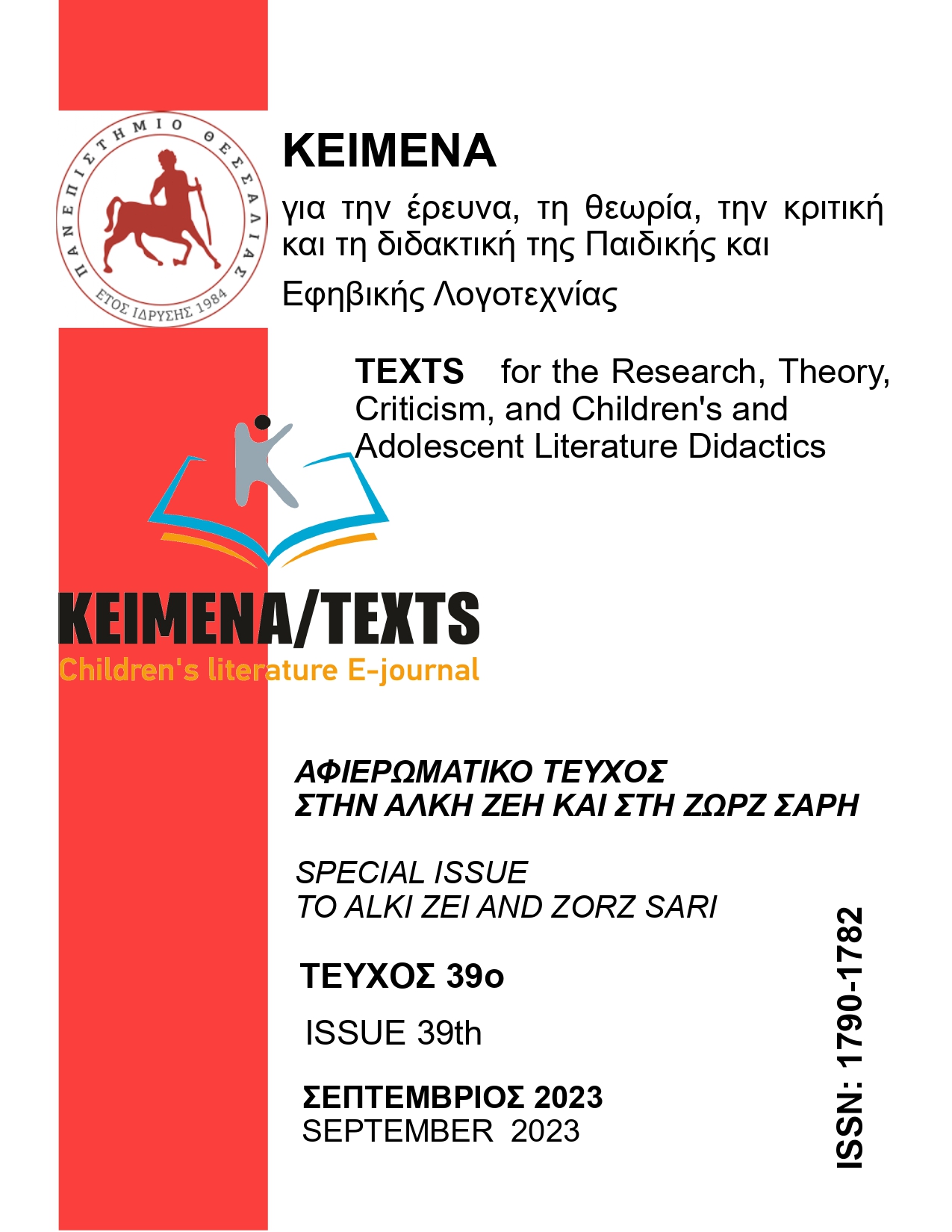«Μα δεν πήρες είδηση τίποτα;» «Όχι, Φάρμουρ, τίποτα». Καλλιεργώντας την Ενσυναίσθηση μέσω της Δημιουργικής Γραφής στο έργο της Άλκης Ζέη «Η Κωνσταντίνα και οι αράχνες της»
DOI:
https://doi.org/10.26253/heal.uth.ojs.kei.2023.1950Abstract
Abstract
While reading a book, time expands and is enriched with new challenging experiences that go beyond the boundaries of our life as an individual. The sight into our inner self becomes more and more profound as we trace and identify with the motives, actions, more profound thoughts and ideas of either the author or the characters he has created. How is it possible to step into somebody else’s shoes? This “somebody” can be an autistic child, as portrayed in Mask Haddon’s “Who Killed the Dog at Midnight?” or an interracial “Girl from Denmark” by David Ebershoff or even people from an unfamiliar, distant country, as in Arundhati Roy’s “God of small things”; How can a child, especially a teenager, who has experienced migration, rejection, disappointment and internal conflict, relate to the content and feel one of the characters οf the book? The working hypothesis of the present study is about the relationship between literature and empathy in the frame of Literary Education. The crossover social novel for children and adults, “Konstantina and her Spiders” by Alki Zei, was chosen as a reference point. It is about a girl who struggles with the “spiders” of her family, social and school environment while navigating the complex paths of adulthood and self-awareness, seeking happiness through artificial paradises. In this direction, proposed teaching actions and creative activities for the 1st year of Higher School will be put forward, complying with the New Analytical Curriculum of the Literature course (2022) based on the theoretical assumptions of Narrative empathy. In this empathetic process, the significant contribution of Creative writing will be highlighted as an educational tool that advocates literary creative reading based on imagination, intuitive thinking and personal experience.
Keywords: Alki Zei, literary education, narrative empathy, creative writing

